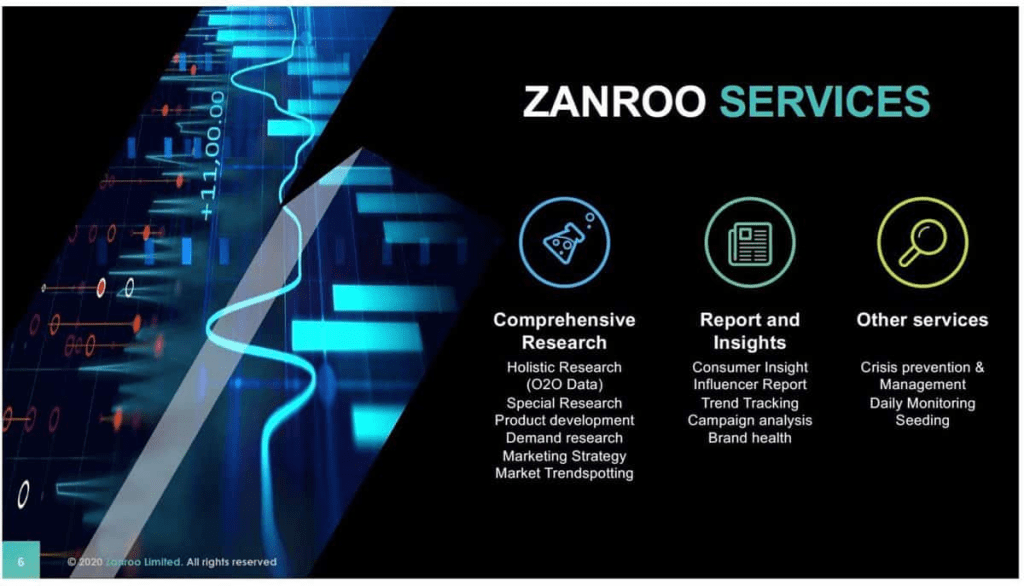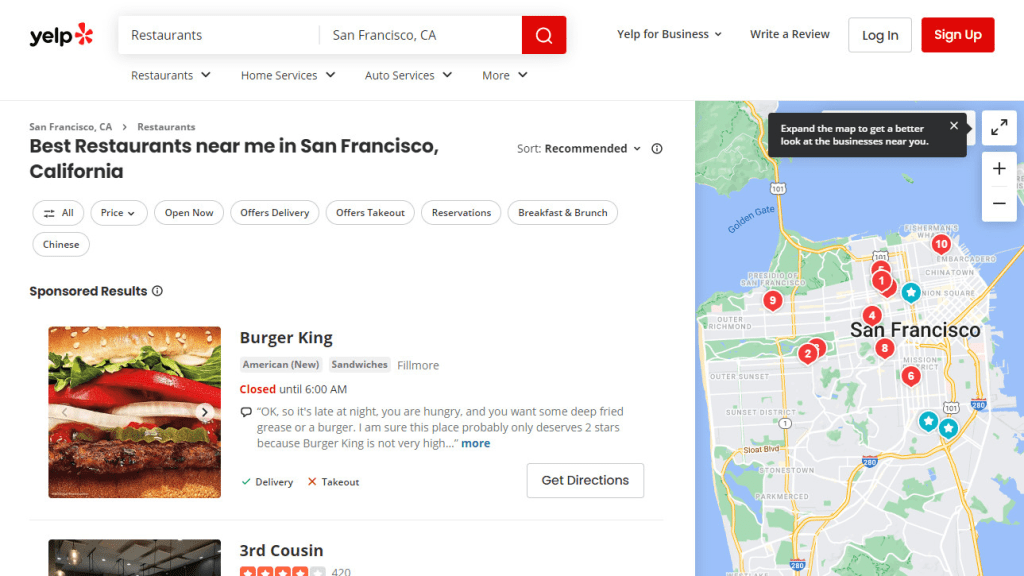Key Takeaways
- Localize Your Strategy: Tailor your SEO approach to the unique cultural nuances and preferences of the Thai audience for maximum impact and resonance.
- Mobile-First Imperative: Prioritize mobile optimization, responsive design, and fast-loading pages for enhanced visibility.
- Content is King, Tailored is Ace: Craft compelling content in Thai, incorporating local language and trends, ensuring a connection that goes beyond search engine algorithms.
Welcome to the dynamic realm of digital visibility in the heart of Southeast Asia – Thailand.
In a landscape where the online marketplace is thriving, mastering the intricacies of Search Engine Optimization (SEO) is nothing short of imperative for businesses and website owners.
As the internet becomes an integral part of daily life in Thailand, the pursuit of a high-ranking position on search engines takes centre stage, presenting both a challenge and an opportunity.

A Comprehensive Guide
This comprehensive guide aims to unravel the mysteries of SEO tailored specifically for the Thai market.
From the bustling streets of Bangkok to the serene beaches of Phuket, the online arena in Thailand is as diverse as its landscapes.
Thus, understanding the nuances of SEO in this unique digital ecosystem is key to unlocking unparalleled growth and success.
In the following sections, we’ll embark on a journey through the essential steps and strategies that will empower you to ascend the search engine ranks systematically.
Whether you’re a local business striving to reach a broader audience or an entrepreneur looking to tap into Thailand’s vibrant online market, this step-by-step guide is designed to be your compass in the ever-evolving landscape of SEO.
Fundamental principles
As we delve into the intricacies of SEO, we’ll explore the fundamental principles that underpin successful digital marketing campaigns.
From deciphering the significance of keyword research in the local context to optimizing your website for mobile users across diverse devices, each section is crafted to equip you with actionable insights and practical tips.
Beyond the technical aspects, we’ll also unravel the cultural tapestry of Thailand and how it intertwines with content creation.
Tailoring your messaging to resonate with the local audience, understanding their preferences, and leveraging cultural nuances are all integral components of a holistic SEO strategy.
But, before we venture further, we like to share who we are and what we do.
About AppLabx
From developing a solid marketing plan to creating compelling content, optimizing for search engines, leveraging social media, and utilizing paid advertising, AppLabx offers a comprehensive suite of digital marketing services designed to drive growth and profitability for your business.
AppLabx is well known for helping companies and startups in Thailand use digital marketing to drive web traffic to their websites and web apps.
At AppLabx, we understand that no two businesses are alike. That’s why we take a personalized approach to every project, working closely with our clients to understand their unique needs and goals, and developing customized strategies to help them achieve success.
If you need a digital consultation, then send in an inquiry here.
SEO in Thailand: A Step-by-Step Complete Guide To Rank High
- Understanding SEO Basics
- Keyword Research for Thailand
- On-Page SEO Optimization
- Off-Page SEO Strategies
- Local SEO Tactics
- Mobile Optimization
- Content Creation for Thai Audience
1. Understanding SEO Basics
In the ever-evolving world of online visibility, grasping the fundamental principles of Search Engine Optimization (SEO) is paramount.
This section will lay the groundwork for your journey into the intricate realm of SEO, providing insights into its definition, importance, and key concepts, with a special focus on the unique dynamics of the Thai digital landscape.

Definition of SEO
SEO, in its essence, refers to the set of practices and strategies employed to enhance a website’s visibility on search engine result pages (SERPs).
In Thailand, where a burgeoning online market is creating new opportunities daily, SEO has become the linchpin for businesses aiming to stand out amidst the digital noise.
Example
For instance, a local Thai restaurant in Bangkok implementing effective SEO strategies can ensure that it appears prominently when users search for keywords like “authentic Thai cuisine” or “best restaurants in Bangkok.”

Importance of SEO for Online Visibility
In the Thai context, where internet penetration is rapidly increasing, the significance of SEO cannot be overstated.
According to a report by Datareportal, Thailand’s internet penetration rate stood at 85.3 per cent of the total population at the start of 2023.
This underscores the necessity for businesses to optimize their online presence for search engines to capture the attention of the Thai online audience.
Key SEO Terms and Concepts
To navigate the intricacies of SEO, it’s crucial to familiarize yourself with key terms and concepts that form the foundation of effective optimization strategies.
Keywords
- Definition: Keywords are the words or phrases users type into search engines when looking for information.
- Example: For a travel agency in Thailand, relevant keywords could include “best places to visit in Thailand” or “Thailand vacation packages.”
SERP (Search Engine Results Page)
- Definition: SERP is the page displayed by a search engine in response to a user’s query.
- Example: Achieving a high ranking on the SERP for “digital marketing agency in Bangkok” increases the visibility of a marketing agency to potential clients.
Backlinks
- Definition: Backlinks are links from other websites to your site, indicating credibility and authority.
- Example: A Thai fashion blogger linking to an online clothing store’s website can positively impact the store’s SEO by signalling relevance and trustworthiness.
In the next sections, we’ll delve deeper into each aspect, starting with the critical phase of keyword research tailored specifically for the Thai market.
2. Keyword Research for Thailand
In the quest for optimal SEO performance, understanding the intricacies of keyword research is paramount.
In the context of Thailand, where language nuances and cultural diversity play a significant role, this section will guide you through the essentials of keyword research tailored to the Thai market.

Importance of Local Keyword Targeting
Thai internet users often employ search queries specific to their locality and preferences.
Therefore, honing in on local keywords is essential to align your content with the search intent of the Thai audience.
Example
Consider a Thai user looking for skincare products in Bangkok.
While a general keyword might be “best skincare products,” a more localized and effective keyword could be “best skincare products in Bangkok” or even “ครีมดีบอกต่อ กรุงเทพ” (translated somewhat as: highly recommended cream Bangkok).
Tools for Effective Keyword Research in the Thai Market
Harnessing the right tools is crucial for identifying relevant keywords and understanding user behaviour.
Fortunately, several tools cater specifically to the Thai market.
Google Keyword Planner
- Overview: Google’s Keyword Planner provides insights into search volume, competition, and suggested bids for keywords.
- Example: By using the Keyword Planner, you can discover that “ที่พักเชียงใหม่” (translated: accommodation Chiang Mai) has a high search volume, indicating a significant interest in Chiang Mai accommodations.

Thai Keyword Research Tools
- Overview: Platforms like Zanroo offer in-depth analysis of Thai keywords, helping you uncover valuable insights.
- Example: Zanroo’s keyword research tool might reveal that “อาหารทะเล” (translated: seafood) is a trending keyword among Thai users.

Identifying High-Potential Keywords for Your Niche
Tailoring your keyword strategy to your niche is key for relevance and competitiveness in the Thai digital landscape.
Competitor Analysis
- Overview: Analyzing competitors’ keywords can unveil opportunities and gaps in your niche.
- Example: If a competing travel agency is ranking high for “ทัวร์เกาะสมิหลา,” (translated: tour Koh Samui) it indicates a potential keyword for your travel business targeting the same audience.
Long-Tail Keywords
- Definition: Long-tail keywords are more specific, often comprising three or more words, addressing a niche audience.
- Example: Instead of targeting “โรงแรม” (translated: hotel), consider “โรงแรมสุขุมวิท ราคาประหยัด” (translated: Sukhumvit hotels budget-friendly prices) for a more refined audience.
Seasonal and Trending Keywords
Incorporating seasonal and trending keywords is crucial to staying relevant and capturing current market interests.
Example
During Songkran (Thai New Year) season, keywords like “สงกรานต์ ที่พัก” (translated: Songkran accommodation) might experience a surge in popularity.
3. On-Page SEO Optimization
As we navigate the intricacies of SEO in Thailand, the significance of On-Page SEO Optimization cannot be overstated. This section will delve into the core aspects of optimizing your web pages to align seamlessly with the preferences of the Thai audience.

Title Tags, Meta Descriptions, and Header Tags
Crafting compelling and keyword-rich title tags, meta descriptions, and header tags is the first step toward enhancing your on-page SEO in Thailand.
Title Tags
- Best Practices: Keep titles concise, include targeted keywords, and ensure they are culturally relevant.
- Example: Instead of a generic “Bangkok Hotels,” opt for “ที่พักกรุงเทพ: โรงแรมที่ดีที่สุดในเมือง” (translated: Bangkok Accommodations: Best Hotels in the City).

Meta Descriptions
- Best Practices: Craft meta descriptions that provide a clear snapshot of the content, encouraging clicks.
- Example: “ค้นหาที่พักในกรุงเทพที่ใกล้กับแหล่งช้อปปิ้งและสถานที่ท่องเที่ยว” (translated: Find accommodations in Bangkok near shopping and tourist destinations).
Header Tags
- Best Practices: Use header tags to structure content logically, incorporating relevant keywords.
- Example: H1 – “เที่ยวไทย: สุดยอดประสบการณ์การท่องเที่ยว,” H2 – “กรุงเทพ: ที่พักแนะนำ,” H3 – “รีวิวโรงแรมในเขตสุขุมวิท.”
Keyword Placement and Density
Strategically placing keywords throughout your content and maintaining an optimal keyword density is crucial for search engine visibility.
Natural Integration
- Best Practices: Integrate keywords naturally within the content to enhance readability and maintain a conversational tone.
- Example: “เมื่อคุณเยี่ยมชม พิพิธภัณฑ์เฉลิมกรุง เพื่อเรียนรู้เพิ่มเติมเกี่ยวกับประวัติศาสตร์ที่น่าทึ่งของประเทศไทย.”
Optimal Keyword Density
- Best Practices: A keyword density of 1-2% is generally considered optimal for blog posts.
- Example: For a 500-word article, use the main keyword 5-10 times naturally.
URL Structure Optimization for Thai Audience
Creating clean and user-friendly URLs that incorporate relevant keywords contributes to both SEO and user experience.
Best Practices
- Use Hyphens: Separate words with hyphens for readability (e.g., “/ที่พัก-กรุงเทพ/”).
- Include Keywords: Embed primary keywords in the URL for clarity and relevance (e.g., “/เที่ยวไทย-ที่พัก-ปลอดภัย”).
Image Optimization and Alt Tags
Optimizing images is crucial for both SEO and faster page loading times, contributing to a positive user experience.
Best Practices
- File Naming: Rename image files using descriptive keywords before uploading.
- Alt Tags: Include descriptive alt tags in both Thai and English to enhance accessibility.
4. Off-Page SEO Strategies
As we delve into the multifaceted landscape of SEO in Thailand, the importance of Off-Page SEO Strategies emerges as a key driver of online success.
In this section, we will explore dynamic approaches to building credibility, fostering backlinks, and leveraging social signals within the unique context of the Thai digital ecosystem.

Importance of Backlinks in SEO
Backlinks, or inbound links from other websites, remain a cornerstone of Off-Page SEO, indicating trust, authority, and relevance.
In the Thai digital arena, understanding how to build and nurture backlinks is critical for SEO success.
Local Backlinks
- Strategy: Seek backlinks from reputable Thai websites, directories, and industry-specific platforms.
- Example: A Thai travel blog linking to your travel agency’s site can significantly boost your site’s credibility within the local context.
Guest Blogging
- Strategy: Contribute guest posts to Thai websites, providing valuable content in exchange for backlinks.
- Example: Writing a guest post for a popular Thai lifestyle blog with a link back to your site enhances your authority in the niche.
Building High-Quality Backlinks in the Thai Context
In the Thai digital landscape, the quality of backlinks often outweighs the quantity. Building links from authoritative sources enhances your website’s trustworthiness and visibility.
Influencer Collaborations
- Strategy: Partner with Thai influencers relevant to your industry for sponsored content or reviews.
- Example: A collaboration with a Thai beauty influencer can result in high-quality backlinks and increased brand visibility.
Local Press and Media
- Strategy: Secure coverage in Thai media outlets, fostering organic backlinks from news articles.
- Example: An article in a leading Thai business magazine can generate authoritative backlinks for a financial services website.
Social Media Signals and Their Impact on SEO
Social signals, such as likes, shares, and comments on social media platforms, contribute to Off-Page SEO by signalling content relevance and engagement. In Thailand, where social media is a dominant force, harnessing these signals is imperative.
Thai Social Platforms
- Strategy: Promote content on popular Thai social media platforms like Facebook, Instagram, and LINE.
- Example: A visually appealing Instagram post showcasing your products with relevant hashtags can generate social signals and drive organic traffic.
Engaging Thai Audiences
- Strategy: Create content that resonates with Thai culture, trends, and current events to encourage social engagement.
- Example: Running a Facebook contest tied to a Thai festival can spark discussions and increase social signals.
Social Bookmarking in the Thai Market
Leveraging Thai social bookmarking platforms can amplify your Off-Page SEO efforts by increasing visibility and generating traffic.
Platforms like Pantip
- Strategy: Participate in discussions and share valuable content on Thai forums like Pantip.
- Example: A thread discussing your product on Pantip with positive reviews can lead to increased brand awareness and traffic.

Thai Q&A Websites
- Strategy: Answering questions on Thai Q&A platforms establishes authority and can result in backlinks.
- Example: A detailed response to a travel-related question with a link to your travel guide boosts credibility.
How to kickstart your business digital SEO journey by hiring top SEO Specialists in Thailand?
Discover the power of seamless hiring with 9cv9 Job Portal, your ultimate destination for recruiting top-tier SEO Specialists in Thailand.
As the leading platform connecting employers with skilled professionals, 9cv9 streamlines the hiring process, ensuring you find the perfect candidate to elevate your online presence.
Their user-friendly interface allows you to post job listings effortlessly, reaching a vast pool of qualified SEO Specialists who are ready to take your digital strategy to new heights.
With advanced search filters and tailored recommendations, 9cv9 ensures that you connect with the most suitable candidates quickly and efficiently.
Elevate your SEO game and transform your online visibility by partnering with 9cv9 Job Portal today – where hiring excellence meets digital expertise in Thailand.
Post 1 free job posting here at 9cv9 Hiring Portal in under 10 minutes.
5. Local SEO Tactics
In the dynamic landscape of SEO, Local SEO Tactics stand as a beacon for businesses aiming to connect with their target audience in specific geographical regions.
In this section, we will explore tailored strategies for optimizing your online presence for local searches in the vibrant context of Thailand.

Google My Business Optimization
Google My Business (GMB) is a pivotal tool for local businesses, enhancing visibility on Google Maps and local search results. Optimizing your GMB profile is fundamental to Local SEO success.
Accurate Business Information
- Optimization: Ensure your business name, address, and phone number (NAP) are accurate and consistent across all online platforms.
- Example: A Thai restaurant’s GMB profile should reflect its correct address, operating hours, and contact information.
Engaging Business Descriptions
- Optimization: Craft a compelling business description with relevant keywords and information about your products or services.
- Example: A spa in Bangkok can describe its unique Thai-inspired treatments and wellness services in its GMB profile.
Local Citations and Directories in Thailand
Building local citations involves listing your business on online directories, enhancing visibility and credibility.
In Thailand, leveraging local directories is a strategic Local SEO tactic.
Thai Business Directories
- Optimization: Ensure your business is listed on popular Thai directories like Wongnai, Yelp, or ThaiYellowPages.
- Example: A boutique hotel in Phuket benefits from being listed on Wongnai, a prominent Thai restaurant and business directory.

Consistent NAP Information
- Optimization: Maintain consistency in your business NAP information across all directories.
- Example: A clothing store in Chiang Mai should have the same address and contact details on multiple Thai business directories.
Customer Reviews and Their Role in Local SEO
Customer reviews play a pivotal role in local search rankings and building trust among potential customers.
Encouraging and managing reviews on platforms relevant to the Thai market is crucial.
Encourage Reviews on Thai Platforms
- Optimization: Prompt satisfied customers to leave reviews on popular Thai review platforms like Pantip or Wongnai.
- Example: A positive review about a tour company’s services in Wongnai contributes to its local credibility.
Respond to Reviews
- Optimization: Respond promptly and professionally to both positive and negative reviews, showcasing customer-centricity.
- Example: A polite response to a customer’s feedback on Pantip demonstrates the business’s commitment to customer satisfaction.
Geo-Targeted Content and Keywords
Tailoring your content and keywords to reflect local nuances and preferences is a potent strategy for Local SEO in Thailand.
Localized Keywords
- Optimization: Integrate keywords relevant to specific locations and neighbourhoods.
- Example: A real estate agent in Pattaya might optimize for keywords like “บ้านให้เช่า พัทยา” (translated: houses for rent Pattaya).
Geo-Targeted Content
- Optimization: Develop content that addresses local interests, events, and news.
- Example: A blog post about upcoming festivals in Chiang Mai can attract local traffic and engagement.
Structured Data Markup for Local Businesses
Implementing structured data markup using Schema.org can provide search engines with additional context about your business, improving local search results.
Optimization
- Include Local Business Markup: Specify your business’s location, contact details, and operating hours using Schema.org markup.
- Example: Adding structured data markup for a Thai spa can enhance its visibility in local search results, especially for users seeking nearby services.
6. Mobile Optimization
In the era of smartphones and rapid digital adoption, Mobile Optimization stands as a non-negotiable aspect of a successful SEO strategy.
This section will explore the importance of mobile-friendly websites, responsive design for diverse devices in the Thai market, and the critical role of page speed optimization.

Importance of Mobile-Friendly Websites
Mobile devices are ubiquitous in Thailand, with a significant portion of internet users relying on smartphones for online activities.
Thus, ensuring your website is mobile-friendly is not just a recommendation but a strategic imperative for SEO success.
Mobile Internet Usage in Thailand
A large majority of your audience in Thailand is likely to engage with your website through mobile devices, underscoring the importance of mobile optimization.
Google’s Mobile-First Indexing
- Algorithm Update: Google uses mobile-first indexing, prioritizing the mobile version of a website for indexing and ranking.
- Example: If your website is not mobile-friendly, it may rank lower in Google search results, impacting visibility among Thai users.
Responsive Design for Different Devices in the Thai Market
Creating a seamless user experience across a variety of devices, including smartphones and tablets, is a hallmark of responsive design. In Thailand, where users have diverse preferences in terms of devices, a responsive design is crucial.
Device Preferences in Thailand
Analyzing device preferences among Thai users helps tailor responsive design. For instance, if a significant portion of your audience uses tablets, optimizing for tablet screens is essential.
Cross-Browser Compatibility
- Optimization: Ensure your website functions seamlessly on different browsers commonly used in Thailand, such as Chrome, Firefox, or Safari.
- Example: Testing your website on various browsers ensures a consistent experience for users, regardless of their browser preferences.
Page Speed Optimization
Page speed is a critical factor influencing both user experience and search engine rankings.
In the Thai digital landscape, where fast and efficient access is prioritized, optimizing page speed is imperative.
Impact on User Experience
- According to Google, as page load time goes from one second to 10 seconds, the probability of a mobile site visitor bouncing increases by 123%.
- Slow-loading pages can lead to increased bounce rates, negatively impacting user engagement on your website.
Google’s Core Web Vitals
- Algorithm Emphasis: Google’s Core Web Vitals, including metrics like Largest Contentful Paint (LCP) and Cumulative Layout Shift (CLS), emphasize the importance of page speed for user experience.
- Optimization: Improving LCP by optimizing large elements and minimizing CLS by ensuring page elements don’t shift unexpectedly are crucial for meeting Google’s criteria.
CDN Implementation
- Optimization: Implementing a Content Delivery Network (CDN) can enhance page speed by distributing content across servers geographically closer to users.
- Example: A website of a Thai e-commerce store implementing a CDN can provide faster loading times for users across the country.
User-Friendly Navigation for Mobile Users
Creating an intuitive and user-friendly navigation experience on mobile devices is paramount for keeping users engaged and facilitating seamless interactions.
Optimization
- Simplified Menus: Streamline navigation menus for mobile screens to enhance user experience.
- Example: A Thai travel website can have a simplified mobile menu that prominently features popular destinations and travel categories.
7. Content Creation for Thai Audience
Creating content that resonates with the unique cultural nuances and preferences of the Thai audience is a pivotal aspect of a successful SEO strategy.
In this section, we will explore strategies for tailoring content to the Thai context, using the local language, and ensuring relevance and cultural sensitivity.

Tailoring Content to Meet Local Preferences
Understanding and aligning with local preferences is central to crafting content that captures the attention of the Thai audience.
Localized Themes
- Strategy: Develop content that incorporates themes relevant to Thai culture, traditions, and current events.
- Example: A blog post discussing the significance of Loy Krathong and suggesting unique ways to celebrate can resonate with a Thai audience.
Visual Appeal
- Strategy: Utilize visuals and multimedia elements that reflect Thai aesthetics and appeal to local tastes.
- Example: An e-commerce website selling traditional Thai handicrafts can use vibrant and culturally rich images to showcase products.
Using Local Language and Cultural Nuances
Incorporating the Thai language and cultural nuances into your content is crucial for establishing a connection with the local audience.
Bilingual Content
- Strategy: Consider creating bilingual content with Thai and English versions to cater to a broader audience.
- Example: A Thai cooking blog can provide recipes in both Thai and English to cater to local and international readers.
Thai Idioms and Expressions
- Strategy: Integrate Thai idioms and expressions to add authenticity and cultural depth to your content.
- Example: Incorporating the phrase “สู้ๆ” (translated: stay strong) in a motivational post can resonate with Thai readers on a personal level.
Content Freshness and Relevance
In the dynamic digital landscape of Thailand, keeping content fresh and relevant is essential for sustained engagement and SEO success.
Trending Topics
- Strategy: Stay informed about local trends, events, and news, and create content around trending topics.
- Example: A technology blog covering the latest innovations in Thai start-ups can attract a tech-savvy local audience.
Seasonal and Cultural Calendar
- Strategy: Align content with Thai festivals, holidays, and cultural celebrations.
- Example: A fashion brand creating content around traditional Thai clothing during Songkran or Loy Krathong can tap into the festive spirit.
Leveraging Social Media for Content Promotion
Social media is a powerful platform for content distribution in Thailand, where digital engagement is high.
Platform-Specific Strategies
- Strategy: Tailor content promotion strategies for popular Thai social media platforms like Facebook, Instagram, and LINE.
- Example: Running a hashtag campaign on Instagram related to a local event can boost content visibility.
User-Generated Content
- Strategy: Encourage user-generated content by creating interactive campaigns and contests.
- Example: A restaurant in Bangkok can run a photo contest on Facebook, encouraging customers to share their dining experiences.
SEO-Optimized Thai Language Keywords
Incorporating Thai language keywords into your content is critical for SEO success in the Thai market.
Localized Keyword Research
- Strategy: Conduct keyword research specifically targeting Thai language queries.
- Example: A travel blog optimizing for “ที่ท่องเที่ยวในประเทศไทย” (translated: places to visit in Thailand) can attract local search traffic.
Long-Tail Keywords in Thai
- Strategy: Integrate long-tail keywords in Thai to address specific user queries.
- Example: A fitness blog incorporating “โปรแกรมออกกำลังกายที่บ้าน” (translated: home workout programs) can cater to health-conscious Thai users.
Conclusion
In the ever-evolving realm of digital prominence, mastering the intricacies of SEO is not just a choice but a strategic imperative, especially in the vibrant landscape of Thailand.
Our comprehensive guide has taken you through a step-by-step journey, unveiling the nuances and strategies necessary to ascend the ranks and achieve SEO excellence in the Land of Smiles.
A Holistic Approach to SEO Success
From understanding the fundamentals of SEO to tailoring strategies for the Thai audience, we’ve navigated through the diverse facets that contribute to a holistic SEO approach.
The importance of meticulous keyword research, on-page optimization, and off-page strategies tailored to the Thai market has been emphasized to ensure a well-rounded digital presence.
Local Insights, Global Impact
We delved into the significance of local SEO tactics, recognizing that catering to the unique preferences and cultural intricacies of the Thai audience is key to making a lasting impact.
Whether optimizing Google My Business profiles, securing local citations, or fostering user-generated content, the guide has underscored the importance of local insights for global SEO success.
Mobile Optimization: A Mobile-First Imperative
As we explored the pervasive use of mobile devices in Thailand, the importance of mobile optimization became evident.
Statistics highlighting the dominance of mobile internet usage, adopting responsive designs, optimizing page speed, and ensuring user-friendly mobile navigation are critical steps toward a successful SEO strategy.
Crafting Compelling Content for Engagement
Content creation, tailored specifically for the Thai audience, emerged as a cornerstone of SEO success.
By incorporating local language, and cultural nuances, and staying abreast of trending topics, businesses can create content that not only ranks high on search engines but also resonates deeply with the digital-savvy Thai community.
Charting Your SEO Success in Thailand
As you embark on the journey to master SEO in Thailand, remember that the digital landscape is dynamic, and continuous adaptation is key.
Regularly monitor analytics, stay informed about algorithm updates, and embrace emerging trends to stay at the forefront of the ever-evolving SEO landscape.
In the fast-paced digital world of Thailand, where innovation and connectivity converge, your SEO prowess is the compass that guides your brand toward unparalleled visibility and success.
By implementing the insights and strategies from this comprehensive guide, you are not merely optimizing for search engines; you are crafting an online presence that resonates, engages, and stands the test of time in the dynamic digital tapestry of the Land of Smiles.
If you are looking for a top-class digital marketer, then book a free consultation slot here.
If you find this article useful, why not share it with your friends and business partners, and also leave a nice comment below?
We, at the AppLabx Research Team, strive to bring the latest and most meaningful data, guides, and statistics to your doorstep.
To get access to top-quality guides, click over to the AppLabx Blog.
People also ask
How do I rank high in SEO in Thailand?
To rank high in SEO, focus on strategic keyword research, create high-quality, relevant content, optimize on-page elements, build authoritative backlinks, ensure mobile optimization, and stay abreast of algorithm updates. User experience, local SEO, and consistent efforts are paramount for sustained success.
How can I improve my SEO ranking in Thailand?
Boost your SEO ranking by conducting thorough keyword research, optimizing on-page elements, creating valuable content, earning quality backlinks, ensuring mobile-friendliness, enhancing user experience, and staying updated with SEO trends and algorithms. Consistency and relevance are key.
What’s the secret to ranking high in SEO in Thailand?
The secret to ranking high in SEO lies in a holistic approach: precise keyword targeting, exceptional content quality, authoritative backlinks, mobile optimization, and a user-centric focus. Consistency, adaptability, and staying informed about industry trends complete the formula for sustained success.




































